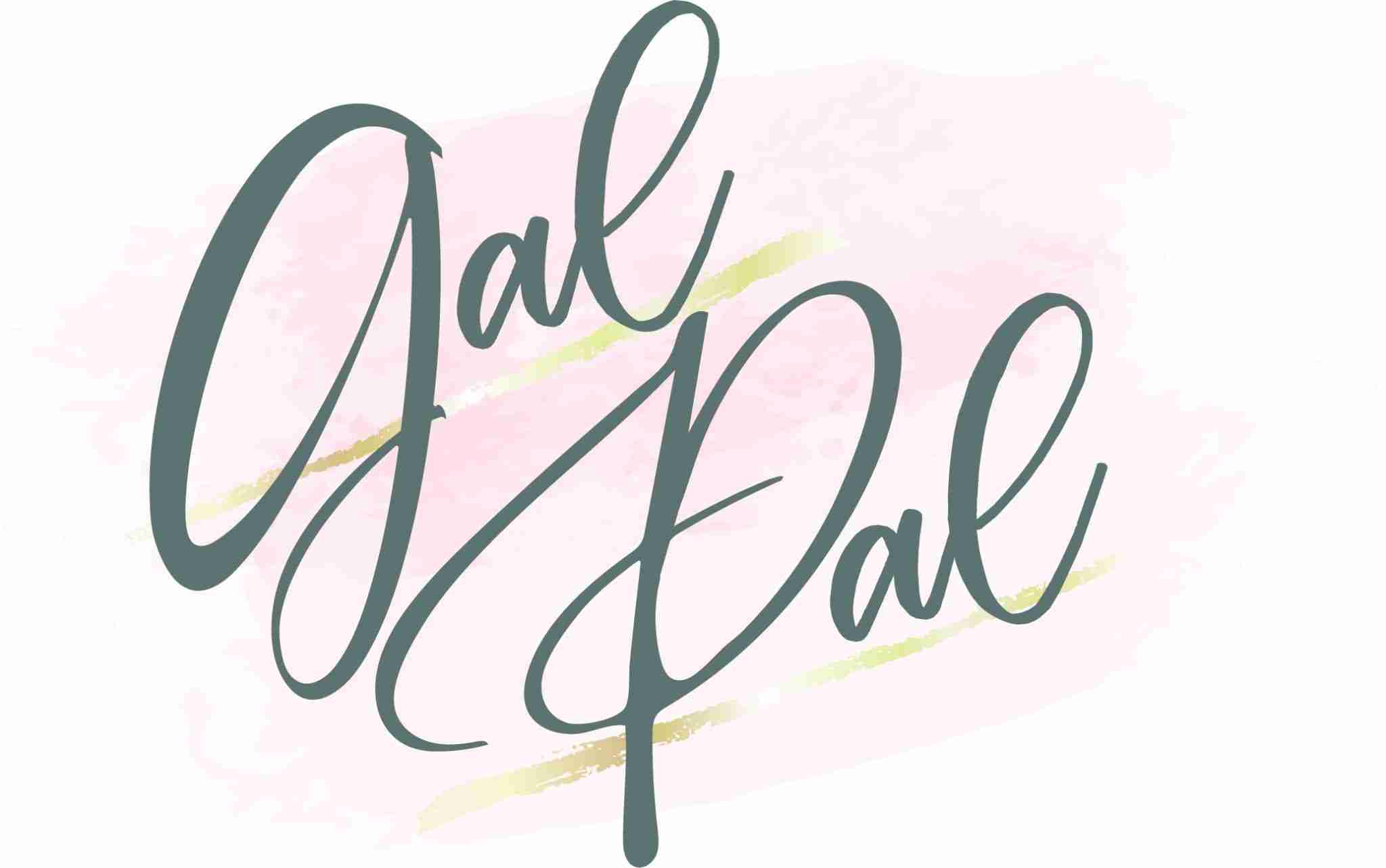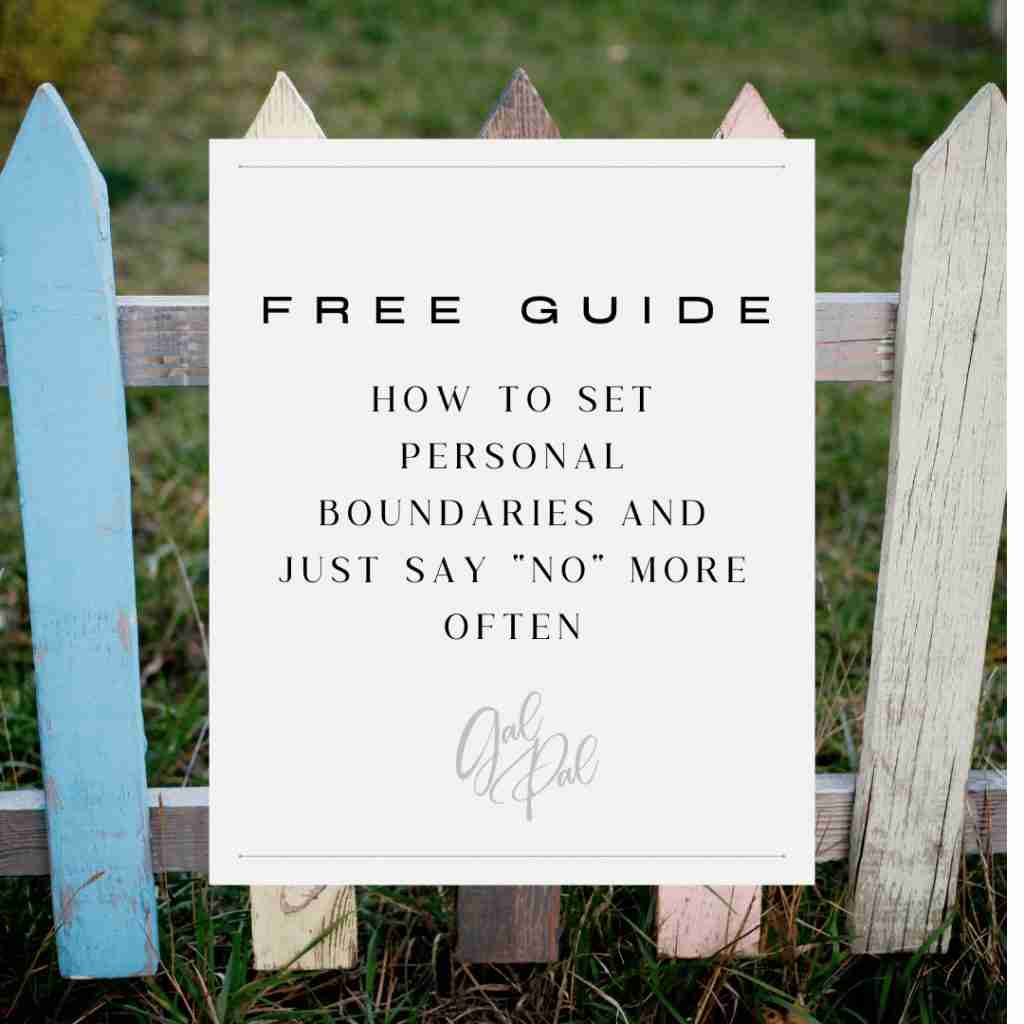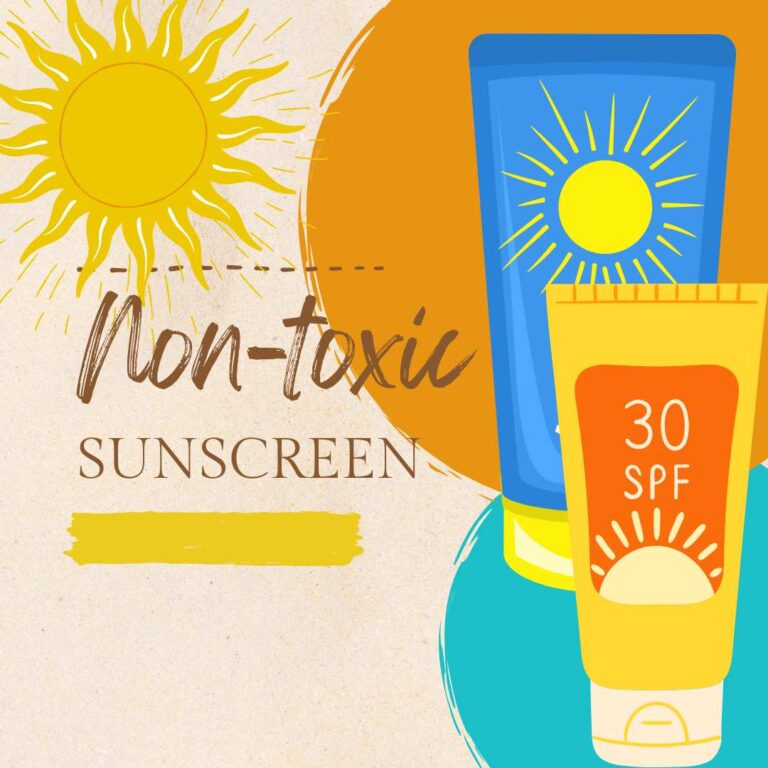How To Set Personal Boundaries And JUST SAY “NO” More Often
“Let today mark a new beginning for you. Give yourself permission to say NO without feeling guilty, mean, or selfish. Anybody who gets upset or expects you to say yes all of the time clearly doesn’t have your best interest at heart. Always remember: You have a right to say no without having to explain yourself. Be at peace with your decisions.”
Setting boundaries is another form of self discipline . It’s about taking care of yourself . The benefit of doing this is better relationships, more self- esteem and time.
Creating a boundary is also similar to setting an intention: You decide what’s important to you and make a commitment to stand by it.
I love this quote:
“Daring to set boundaries is about having the courage to love ourselves, even when we risk disappointing others.”- Brene Brown
Even though personal boundaries can be challenging to navigate, setting and communicating them is essential for our health, well-being, and even our safety.
Setting Personal Boundaries Are More Important than Ever Before
Setting boundaries has never been more critical than it is today. Why? The pandemic has forged a wedge between people who are vaccinated and those who are not.
Those who wear masks, those who do not. Personal boundaries are always important, but they’ve taken on a new meaning and necessity during the coronavirus pandemic.
When you communicate your boundaries with friends, co-workers, and family members it may feel uncomfortable at first, but it’s the best way to let others know what they can expect from you.
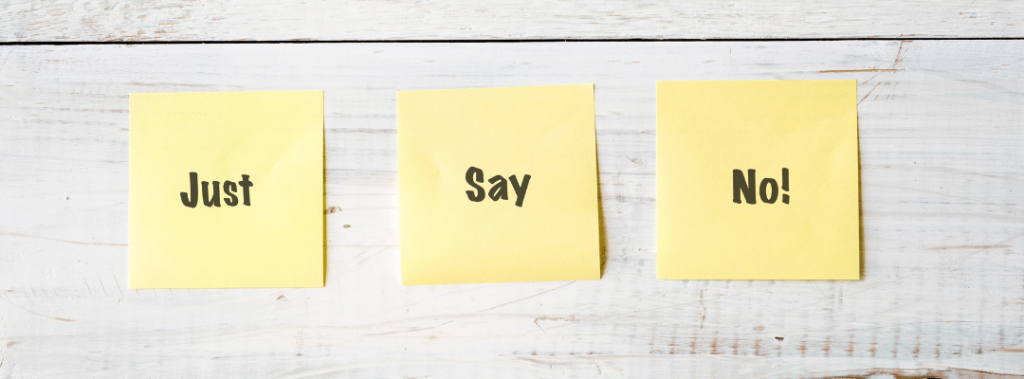
When it comes to your safety, let family members know your expectations at your home and when they are around you. There is a strong likelihood that your friends and family may not agree with you, or they may feel confused, but that’s okay.
Since this is a problem for so many of us (myself included), learning how to set boundaries for what’s best for you and your family members is paramount.
This article is not about being vaccinated or not, it’s about learning how to put a stake in the ground and say no” more often. Doing so will result in a more fulfilled life.
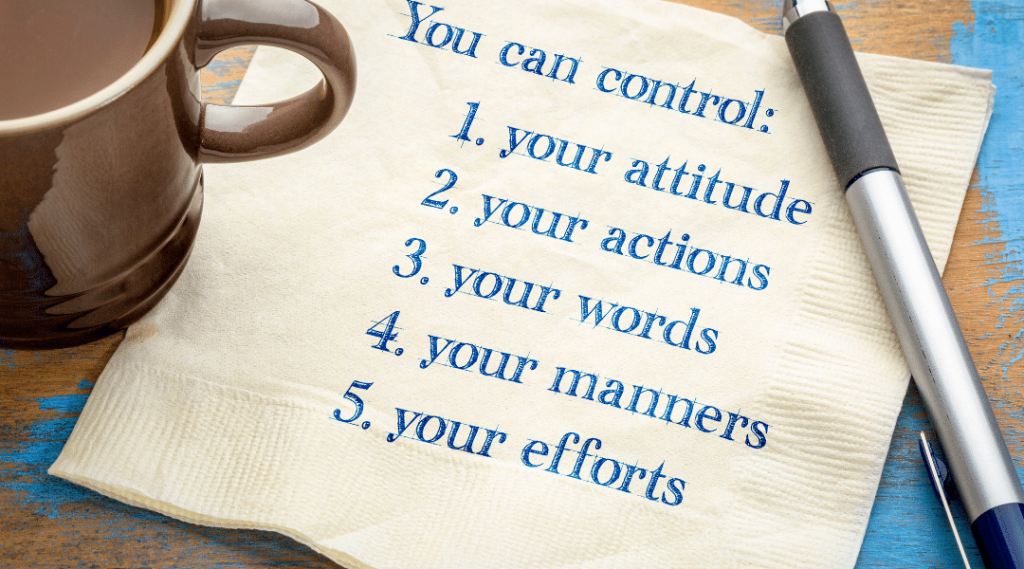
Control The Controllables
We need to try to control the controllables in our lives because there is so much we can’t control. By setting boundaries and saying “no” is the first step to a less stressful happy life.
You can only control yourself… you can’t control others, so establishing those boundaries helps protect your mental health and reduce your stress. Just keep the communication positive and compassionate.
Too often, many people waste a lot of time and energy on things that are beyond their control so it’s essential to determine what you can control and what you can’t.
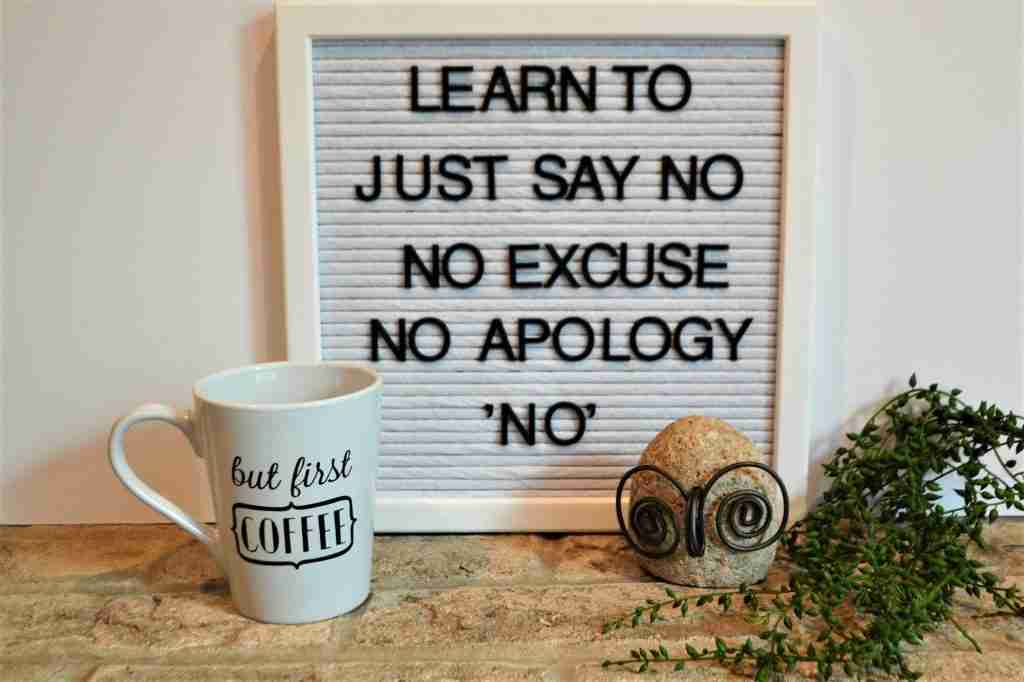
Things that are out of your control may include:
- Other people’s opinions, actions, emotions, or beliefs
- The past
- Your age
- Natural disasters
- When other people die
- The weather
- The traffic
- Your physical needs
Your list of controllables may look something like this:
- Your own opinions, actions, emotions, and beliefs
- Your mindset
- Doing what you can to take care of yourself
- How many hours you work
- What you eat
- How you treat other people
- How you spend your free time
- Who your friends are
- SETTING BOUNDARIES
Setting Boundaries Is An Essential Step In Self-Care
Outside of what has happened this year, setting boundaries for ourselves has always been essential and sticking to our values and goals for our own good. It’s all about self-care. Learning to say “no” and being okay with it.
It’s a healthy habit that can be an empowering habit. It builds mutual respect in your personal and professional life.
Saying no creates more time for ourselves to take better care of our physical and mental health. We simply can’t do everything even though we may want to. I always think I can keep adding to my plate until it is way overfilled then it is too late. By saying no, it provides the opportunity to focus on activities and people in our lives that take priority and align with our life goals.
We have to say “no” to ourselves, too, especially when we walk into the pantry and grab a bag of salty snacks, for instance.
13 Signs That You Need To Set Boundaries For Yourself
1. Feeling overwhelmed with not enough personal time
2. Resentment– Feeling taken advantage of-It’s often a signal that you are extending yourself beyond your limits because you feel guilty or want to be considered a good parent, spouse, sibling, child, friend, or employee. Another common contributor is someone else imposing their expectations, views, or values on you.
3. Feeling burnt out and tired
4. You have no time for yourself
5. Avoidance– You sense you are avoiding people and situations
6. Lack of emotional energy– Feeling emotionally drained
7. Looking for others’ approval too much
8. You sense you need more sexual boundaries
9. You have trouble setting boundaries in toxic relationships and professional situations
10. Your family boundaries are complex for you to follow through with
11. Spending too much time working
12. You suffer from anxiety, depression, or other mental illness
13. Having a difficult time managing money
The Difference Between Healthy & Unhealthy Boundaries
The Difference Between healthy and unhealthy boundaries. Just know that there are healthy boundaries, and then there are unhealthy boundaries (poor boundaries)
Healthy boundaries are when you can be in touch with your physical and mental well-being and know when it’s time to say no. Be transparent and honest with others and with yourself.
Saying “no” doesn’t make you a bad person. Be polite, clear and concise.
Unhealthy boundaries are when you build walls and create rigid boundaries pushing people away. You know, cutting off connections with others. Not sharing anymore and not allowing yourself to be vulnerable. Being vulnerable and transparent is a good thing.
“You can be a good person with a kind heart and still say no.” Lori Deschene
Children and Adults Both Need Boundaries
Research shows that children who have secure parental boundaries have more confidence and less anxiety. Routines and rules that are set and monitored by parents create predictability in a child’s life.
That is the same case for adults. The only difference is that we need to set our boundaries, routines, and rules for self-care reasons.
How To Check In With Yourself And Set Boundaries
Self-reflection
To successfully introduce and set boundaries, it’s key to understand why they’re each important to you and how they will benefit your emotional well-being.
What are your triggers? What people make you feel uneasy, and why? How do you think when you don’t stick to your boundaries?
Just Start
If you don’t have many boundaries in place already, the prospect of introducing more might seem overwhelming — so build them up slowly.
Doing so allows you to take things at a more comfortable pace, and it provides time to reflect on whether it’s heading in the right direction or if you need to make some tweaks.
Set Them Early On In Any Relationship
“Sometimes it can be tough to start putting boundaries in, especially in pre-existing relationships,” says Dr. Quinn-Cirillo. “If you can put in boundaries straight away, it’s a lot easier to work with.”
By setting boundaries and expectations from the beginning, everyone knows where they stand, and feelings of hurt, confusion, and frustration can be lessened.
Be Consistent
Letting boundaries slide can lead to confusion with those around you and may encourage new expectations and demands.
Be determined to stick to your rules and keep things consistent and steady. This helps to reinforce your original thresholds and beliefs, and it ensures those lines remain established.
The best way to start establishing boundaries is by knowing what your limits are. This includes your physical and emotional limits.
Setting and enforcing personal limits raises your sense of self-confidence because you’re sending yourself and those around you a message that you are valuable and worthy of respect.
These boundaries may have to do with:
- Physical contact (not feeling comfortable hugging a person you’ve just met) or when someone gets too close to speak to you.
- verbal interactions (not wanting a friend or family member to speak down to you)
- our own personal space (choosing to not have others in your home when you aren’t there)
- Having neighbors drop in whenever they want.
These boundaries typically fall into a few specific categories:
- Emotional (protecting our own emotional well-being)
- Physical (saving our physical space)
- Sexual (protecting our needs and safety sexually)
- Workplace (safeguard our ability to do our work without interference or drama)
- Material (protecting our personal belongings)
- Time (safeguard the use, and misuse, of our time)
Lack of boundaries invites a lack of respect.
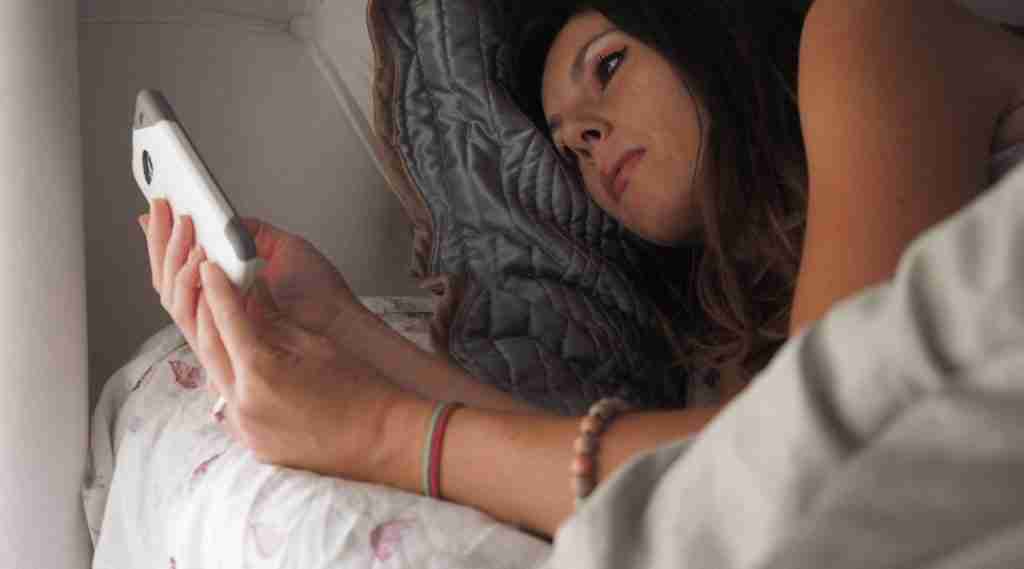
Everyone’s boundaries are unique. The boundaries you create for yourself will reflect your needs and priorities and won’t be the same as these. But this list will give you an idea of what boundaries or limits for yourself might look like.
- Asking people to wear a mask when you feel uncomfortable
- Limit yourself to how much news you watch
- Sticking to your budget
- Learning to say no to
- Limiting yourself to social media- These social platforms allow for boundary blurring. Sharing too much information about friends and family can make things complicated.
- No screens (television, phone) in your bedroom
- Not participating in gossip or talking about someone behind their back
- Not working past 7 p.m.
- Not answering work emails on the weekends.
- Keeping a regular bedtime and wake-up time
- Avoiding people who are hurtful, stress you out, etc.
- Not keeping junk food in the house
- Limiting yourself eating sugar
- If you are tired, it’s okay to say “No” to a friends invitation

Communication Is Key
Communication is critical in the world of boundaries, especially if someone consistently oversteps yours. While you might need to raise your concerns, these discussions need not be confrontational.
For example, if you have a friend who sends messages nonstop, Dr. Quinn-Cirillo suggests saying something along the lines of, “‘I can see you wanted to get hold of me, but the best thing to do is drop me a message, and I’ll get back to you when I can.'” This gently highlights their behavior while simultaneously asserting your threshold.
Be YOUR biggest Hero
For boundaries to have a strong foundation, you need to show yourself a bit of love, notes Baker. “If you’ve got a narrative in your head that says you’re worthless and undeserving, then you’re going to find it difficult to put boundaries in place that protect you,” she says. “A lot of it comes down to self-worth and self-value.”
